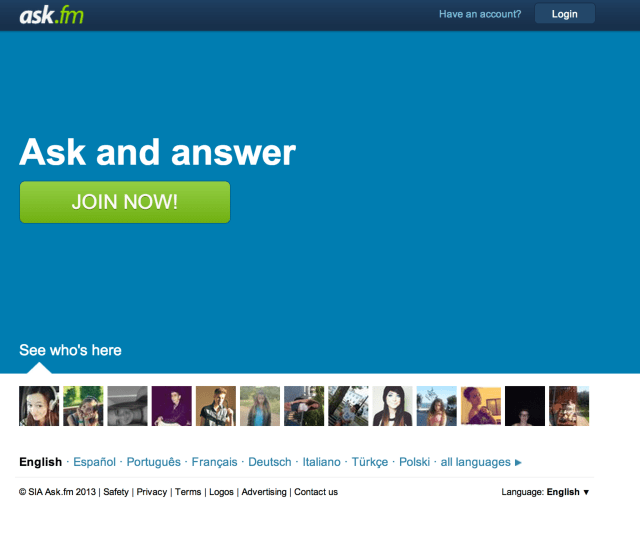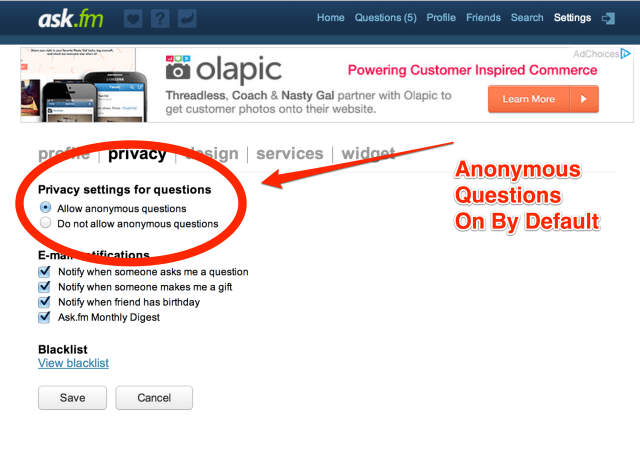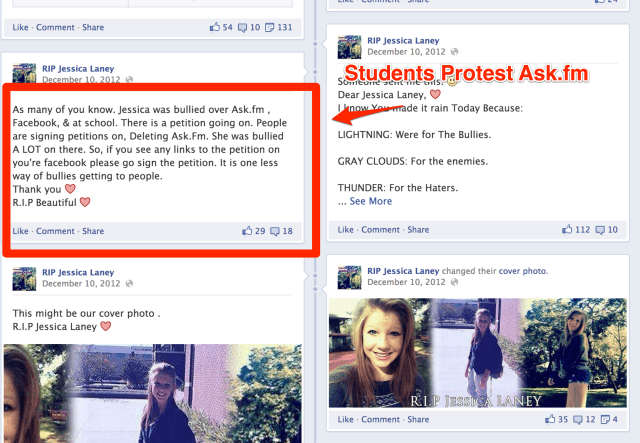The teenage brain is not fully developed, say scientists. Specifically, the part of the brain called the frontal lobe, which houses judgment, insight, dampening of emotions, and impulse control. This is relevant in a discussion about building companies that target young adults, especially if those sites are social media outlets where users are allowed to participate anonymously, share positive and negative feelings, react to posts made by others, and otherwise quickly publicize any idle thought that comes to mind.
And we need to have this discussion, calmly and rationally, because it’s clear social media websites play some role in pushing those susceptible to depression, self-harm and suicidal thoughts to take desperate measures.
We need to address this situation, but not with the goal of blaming the Internet or social media or individual outlets, or sometimes even the bullies who can often just be children, too, making mistakes of their own. We need to think about: whether sites that ignore these problems can be sustainable businesses; whether there are ways to do things differently; and whether we could do more to help children left to wander throughout the web — and all its good and bad parts — quite so alone.
Ask.fm As The New MySpace: Getting Blamed For Teen Suicides
The latest example, and current Internet whipping boy, is Ask.fm. The wildly popular service among teens (and those even younger who lie about their ages), is being blamed by the parents of 14-year old Hannah Smith who recently took her own life after receiving abusive messages from other users on the site: “drink bleach”; “go get cancer”; and “go die” among other things.
 Sadly, Hannah’s suicide is one of many suicides linked to Ask.fm as a result of being bullied by other Ask.fm users — typically children whom the suicide victims know.
Sadly, Hannah’s suicide is one of many suicides linked to Ask.fm as a result of being bullied by other Ask.fm users — typically children whom the suicide victims know.
In December, 16-year old Floridian Jessica Laney was found dead in her home after bullying on Ask.fm — one commenter had even asked “can you kill yourself already?” Others had called her “fat” and “a loser.” Fifteen-year-old Ciara Pugsley of Dromahair, Ireland, who played sports and loved her pony Basil, was taunted by anonymous posters on the site who called her “slut” and “ugly.” She took her own life in September 2012. 15-year old Canadian teen Amanda Todd committed suicide in October, after online and offline bullying, and blackmail over inappropriate photos. 13-year old Erin Gallagher, who faced vicious bullying about her weight and looks, committed suicide the next month. Then her sister Shannon, who missed Erin deeply, also took her life in December 2012, extending that family’s personal tragedy.
Each news outlet retold these families’ personal devastations as cyberbullying cautionary tales, and Ask.fm as the enabler.
Our hearts break for these teens and their families, and in the wake of tragedies like this, humans have an instinctual need to place blame. But is Ask.fm at fault, and if so, to what extent?
Two Schools Of Thought
There are two arguments that can be made regarding Ask.fm’s situation. One, of course, is that the site could and should do more: more moderators, more reporting tools, more site-wide user bans. Less anonymous trolling.
At the very least, anonymity should not be the default, says Patti Agatston, Ph.D. and co-author of Cyber Bullying: Bullying in the Digital Age. “Sites that offer the opportunity for anonymous queries should not be anonymous by default, but rather should allow questions and comments with identities shown by default. A user would have to actively change their default preferences if he or she wishes to allow anonymous questioning,” she says. “This would offer some protection for vulnerable youth since such sites typically allow users as young as 13.”
However, Agatston adds that shutting down Ask.fm wouldn’t solve any problems, as other sites will pop up to take its place. What we really need to do is better educate children about how to navigate social media, as well as social situations offline.
The other argument is that the site does provide adequate controls: The ability to accept anonymous questions can be switched off; questions aren’t published unless a user chooses to answer; and it offers a “report” button where users can report abuse to moderators. Plus, this argument continues, those at blame for the fallout from cyberbullying are the bullies themselves and not the platforms where the bullying occurs.
The Financial Impact Of Cyberbullying On Business
The Ask.fm problem is not at all new. It is not the first, and certainly not the largest, platform to deal with challenges of bad behavior online and the consequences — sometimes quite tragic — it entails. Those with longer memories may remember another prominent social network that once faced the same finger-pointing that Ask.fm now does: Myspace.
This network, too, became known for teen suicides, particularly for the bizarre case where a rival teen’s mom actually did the bullying. Eventually, the panic around cyberbullying, investigations into sexual assaults linked to Myspace users, and high-profile decrees from then Connecticut Attorney General Richard Blumenthal to improve safety standards on the site damaged the site’s reputation. And as the perception of Myspace changed, so did the business. Newcomers Twitter and Facebook targeted Myspace users looking for an out (Facebook with richer privacy tools) as advertisers fled.
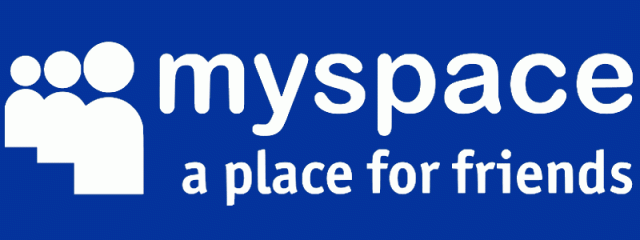 News coverage helped spread the message that Myspace was a dangerous place for kids, and Myspace had to turn its efforts toward user safety and away from innovation. More importantly, it lost its “cool” factor. The crowd moved on, and Myspace fell into decline. Today, it lingers on, seemingly only as a way to boost Justin Timberlake’s record sales.
News coverage helped spread the message that Myspace was a dangerous place for kids, and Myspace had to turn its efforts toward user safety and away from innovation. More importantly, it lost its “cool” factor. The crowd moved on, and Myspace fell into decline. Today, it lingers on, seemingly only as a way to boost Justin Timberlake’s record sales.
The stain of association became too difficult to remove for Myspace. And now Ask.fm is riding out a similar trajectory with a financial impact of its own: Advertisers have been pulling out, including Save the Children (which is leading a boycott), eBay, Vodafone and BT.
Ask.fm may not be any more to blame than Myspace was, or user forums and bulletin boards were in the pre-social media days. But it is increasingly being perceived as the new dangerous playground for children, and it’s facing a crossroads all the same: Clamp down on the free-for-all and risk losing the fickle teens now fueling the site’s meteoric growth, or continue as is, even if the reputation — and revenue possibilities — suffer?
Doing Things Differently
Perhaps a better idea, if one that may come too late for Ask.fm, is to have the foresight to think about these kinds of problems before launching a new social network. One service that has taken this approach is newcomer Whisper, a mobile social network for sharing secrets. The service looks a lot like the online website PostSecret, except that users can socialize around the confessions — yes, even anonymously.
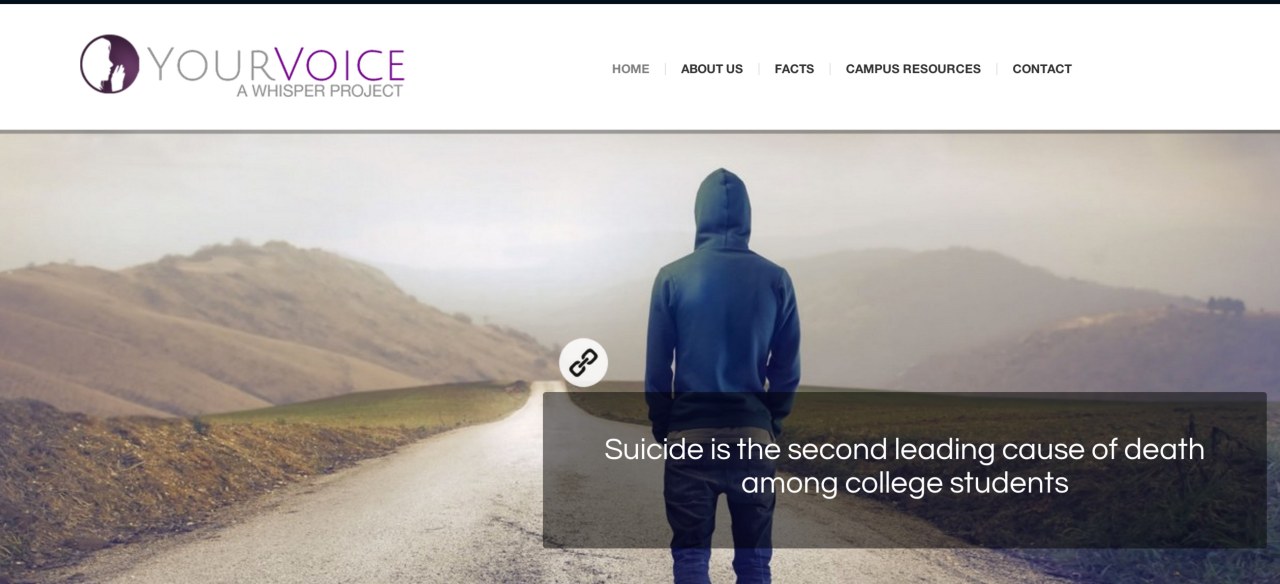
The difference is that Whisper takes its role seriously in enabling a younger, perhaps sometimes even emotionally fragile, audience to have productive and positive discussions about their issues. The service quickly bans accounts in violation of its community policies around abuse. Co-founder Michael Heyward estimates that trolling content is gone in less than a minute and a half, in fact. In addition, the company is associated with a nonprofit organization which it refers to those who post suggestive or “triggering” thoughts, specifically if they’re sharing messages related to self-harm, such as suicide.
Heyward recently explained his position on these, saying that a lot of those building social media sites are unwilling to make short-term sacrifices for long-term viability of the business. The services then become addicted to the traffic, he says, the story of Myspace’s fall from grace fresh on his mind. “They’re not willing to do anything that even remotely alienates a small amount of the audience, or that’s going to affect their daily numbers.”
That statement could also be a subtle jab at Ask.fm, which has benefitted from the Wild West nature of its service, where very little safety info is provided, and policies around prohibiting abuse (“Anonymity should never be used to ask questions that are mean or hurtful“) are obviously not enforced. But Ask.fm’s CEO and founder Ilja Terebin seems more caught off-guard by the fallout as of late, rather than more deviously hoping to profit from the free-for-all, teen-angst-fueled drama. “We understand we have to be responsible for our users,” he recently told TechCrunch, but admitted he didn’t know what he could have done differently. He upheld his belief that Ask.fm has done nothing wrong.
The company is now on PR lockdown.
Humans seem to operate better when things can be neatly placed into boxes and viewed in black and white, but the issue of cyberbullying, self-harm, teen suicide, and social networking sites’ role in all that is not one where answers come easily. But we do need to acknowledge that, of all the social media users out there, children and teens are the least able to think through the potential consequences of their actions, which does perhaps place some responsibility on platform makers to have moderation, abuse reporting (yes, you too, Twitter) and content policies in place — especially when anonymity is an option.
And maybe before the next Twitter, or Myspace, or Ask.fm comes along, the founders could take a minute to ponder whether or not there’s a better way to do this. One where user safety can be built in from the start, without losing the cool factor that draws users — and often the very young — to its service in the first place.
Need help? In the U.S. call 1-800-273-8255 for the National Suicide Prevention Lifeline or 800-931-2237 for the referral helpline offered by NationalEatingDisorders.org. Not in the U.S.? Try Befrienders Worldwide or the International Association for Suicide Prevention.

